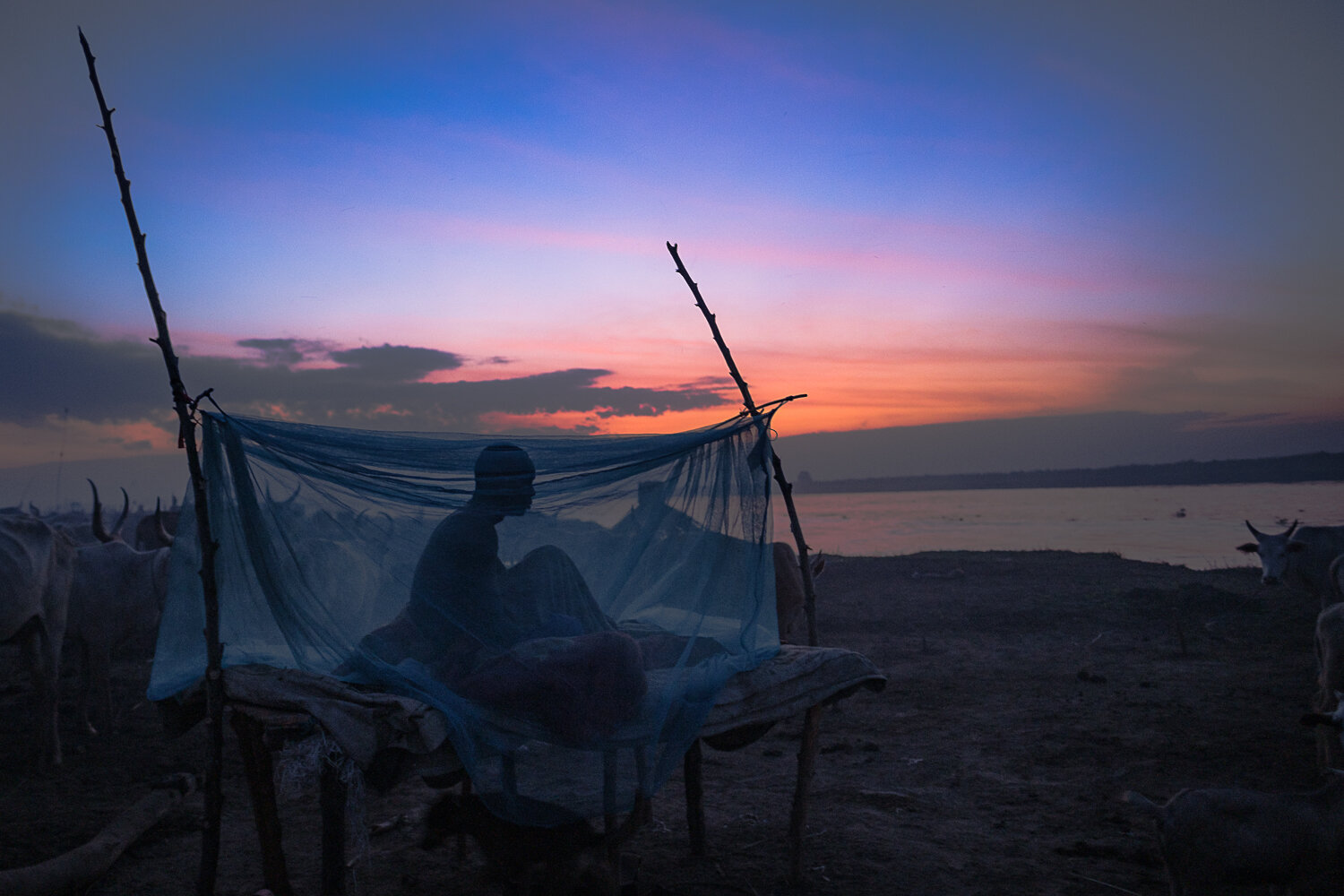Vinculum
South Sudan is a young country, and since 2013 it has been plagued by a bloody civil war, causing 2 million people displaced within the borders and as many refugees in refugee camps in neighboring countries.
This conflict only marginally affects a population that seems to live out of time on the banks of the White Nile: the Mundari, a community of semi- nomadic shepherds of Nilotic origin living in harmony with nature.
Even if they are untouched by the civil war, there’s a another element that might bring change to their traditions: the Juba-Terekeka-Yirol-Rumbek road built by the Chinese construction firm, Shandong Hi-Speed Group Company Ltd (SDHS).
At the present, their life is entirely devoted to the care of animals. At the cattle camp, children wake up at the first light of the morning to prepare the fire, the ash of which will be used by adults to massage the cattle to provide a protective layer against mosquitoes and other parasites. To Mundari, animals are the most valuable asset. For this reason, the Mundari do not eat their meat. To protect the cattle from thieves, men usually walk, albeit in a relative state of peace, with rifles or Kalashnikovs over their shoulder.
Women live in villages and sell food at the local market. Mundari can be easily recognized by the distinctive scarification in V shape on their forehead.











